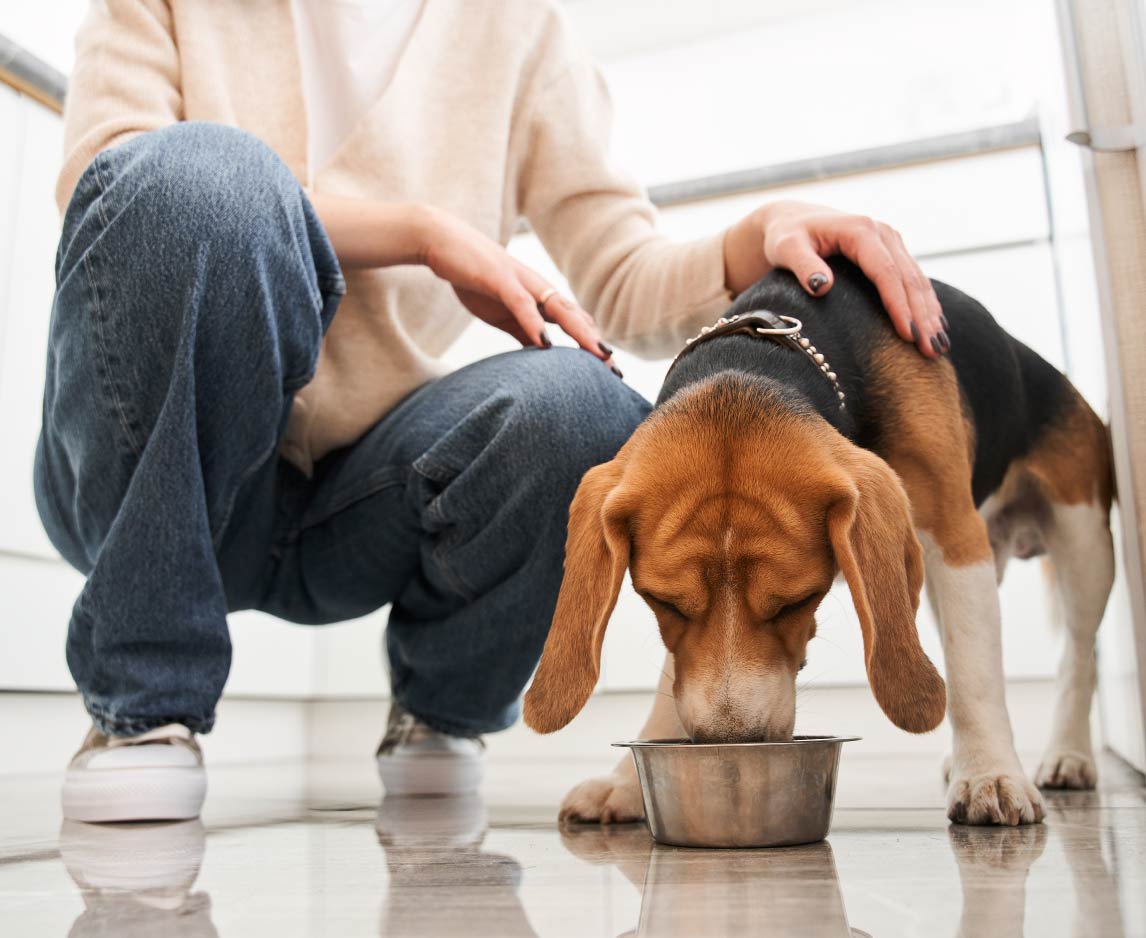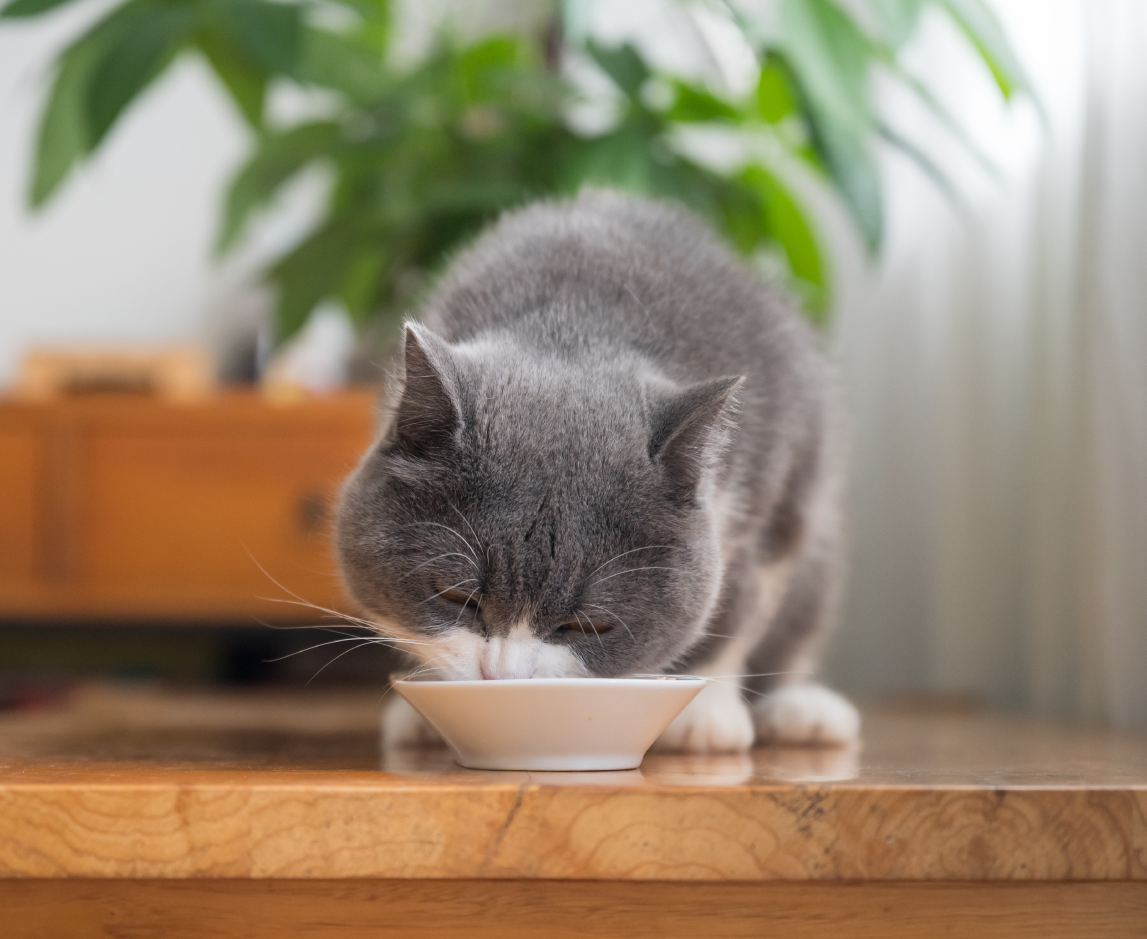Bone broth has skyrocketed in popularity in recent years, becoming widely praised as a health-conscious beverage rich in nutrients, collagen, amino acids and minerals. But did you know that there are notable health benefits when it comes to considering bone broth for dogs?
Let’s take a deep dive to learn more about the hype, and how to properly provide this supplement to our canine companions.
What Is Bone Broth?
Bone broth is a safe way to provide our pets with the abundance of vitamins and minerals found in animal bones. By simmering animal bones over low heat in a liquid stock for a lengthy period of time, micronutrients become incorporated, making bone broth a fantastic source of nutrients without the risks or hassle of raw feeding. Be aware that cooked bones can present choking hazards if they splinter and sharp pieces are ingested.
7 Health Benefits of Bone Broth for Dogs
For the most part, bone broth offers the same health benefits for dogs as it does for humans. Here are seven of the top benefits of bone broth for dogs:
1. Boosts Hydration & Appetite
Although dogs generally have strong thirst drives, they can become dehydrated. Bone broth offers a great hydration option while also delivering vital nutrients. Similarly, dogs can lose interest in eating as they age. Bone broth-infused recipes can help stimulate appetite, making it a great addition to a senior dog’s diet.
2. Fights Inflammation
Heart disease, cancer, diabetes and even some forms of dementia can result from chronic inflammation in dogs. The amino acid profile of bone broth, particularly glycine and arginine, has anti-inflammatory benefits.
3. Helps Digestion
Dogs who experience nutritional deficiencies can develop leaky gut syndrome and subsequent food allergies. These illnesses can be reduced with the consumption of bone broth.
4. Supports Joint Health
In addition to both glucosamine and chondroitin, bone broth contains hyaluronic acid that contributes to healthy joint function.
5. Maintains Healthy Skin & Coat
Dogs will produce less collagen — a main structural protein found in the skin and coat — as they age. Bones are a plentiful source of collagen, making bone broth a palatable way to improve appearance and skin health.
6. Ensures Essential Minerals
One of the most widely talked about benefits of bone broth is that it provides essential nutrients that power the cardiovascular system, nervous system and other essential bodily functions.
7. Empowers the Immune System
Give your pet’s immune system everything it needs to fight off illnesses both big and small. Bone broth can be a beneficial remedy for sick dogs, or when they’re dealing with upset stomachs.
Safety Tips & Considerations
Hopefully, the benefits of bone broth for dogs is now abundantly clear. Let’s review some things to keep in mind so your pup stays safe when adding it to their regimen:
Make a Gradual Introduction
Dogs are known for having gastrointestinal tracts that become conditioned to a feeding routine and are sensitive to change. For this reason alone, but even more so because of micro-ingredients that are potential allergens, bone broth should always be added in small increments. Always check for palatability by giving your dog a small serving of the new broth first.
Check Ingredients Carefully
Though it only takes animal bones and a liquid base to make bone broth, a multitude of ingredients can find their way into manufactured recipes. Always be on the lookout for ambiguous terms, like unspecified animal bones and ingredients such as onion or garlic, which can be toxic to canines.
Moderation, moderation, moderation
The old saying is true — too much of a good thing can be bad. When it comes to bone broth, remember that it can be a beneficial supplement to a dog’s diet, but it is not a main dish or to be given in excess.
For those DIYers: Remember to strain
It’s common knowledge that cooked bones present a hazard to dogs, and after the simmering process, any fragments remaining in a broth can also cause issues. Always make sure to thoroughly clear prepared broth of bone material.
Consult a veterinarian
The best practice is to speak with a trusted veterinarian regarding your canine when changing anything about their nutrition. A vet will be able to help identify conditions that bone broth can help improve, or raise concerns when appropriate.
Ways To Feed Bone Broth To Your Dog
So you’ve decided to search for the best bone broth for dogs. You have two options: You can prepare bone broth at home or choose from the many options for sale.
To get started on this homemade recipe — reviewed by Dr. Paola Cuevas — you’ll need water, apple cider vinegar, bones, dog-safe vegetables and either a large pot or slow cooker.
- Purchase the bones of your pup’s favorite protein source. (Hint: It’s a good idea to include bones with joints for a good variety of nutrients). Place them in your pan or slow cooker of choice.
- Add about one gallon of water for every 1–2 lbs of bones. The water should cover the bones by an inch.
- Add a tablespoon or two of apple cider vinegar to help with mineral extraction.
- Add chopped vegetables. Cover and cook for up to 24 hours until the bones are soft and somewhat crumbly.
- Remove bones; some people strain, which removes vegetable solids, but as an alternative, bones can be carefully removed and the vegetables can be added back.
- Shut off the stove or slow cooker.
- Allow the broth to cool to room temperature and skim off any layer of fat. Broth can be refrigerated in an airtight container for up to four days, or frozen for up to two months.
When looking at prepared options on the market, be sure that onion, garlic and other ingredients that are toxic to dogs are not included. Excess salt and unknown ingredients should also be avoided.
FAQs
Is there concern about possible heavy metals in bone broth?
It has long been thought that bone broth contains dangerous levels of heavy metals, such as cadmium and lead. However, in a 2017 study of commercial broths, heavy metal levels were found to be only a few micrograms per serving, meaning the risk to dogs is minimal.
Can my dog consume bone broth made for human consumption?
While it’s common to assume that human-grade foods are safe to share with pets, the assumption can be dangerous. Some broths prepared for us bipeds can contain ingredients like onions or garlic, which are very dangerous for dogs to consume.
If I boil rather than simmer the bones, won’t that speed up the process?
Avoid the temptation to speed up the preparation of bone broth by boiling, rather than simmering bones. It is the slow simmering process that draws nutrients and flavor from bones, while boiling simply burns off the liquid.
Why Choose RAWZ?
Your pet’s well-being is our top priority. That’s why all of our dog and cat food products are minimally processed, without meals or grains and crafted in small batches. Check out our products for yourself at one of our independent retail partners.





